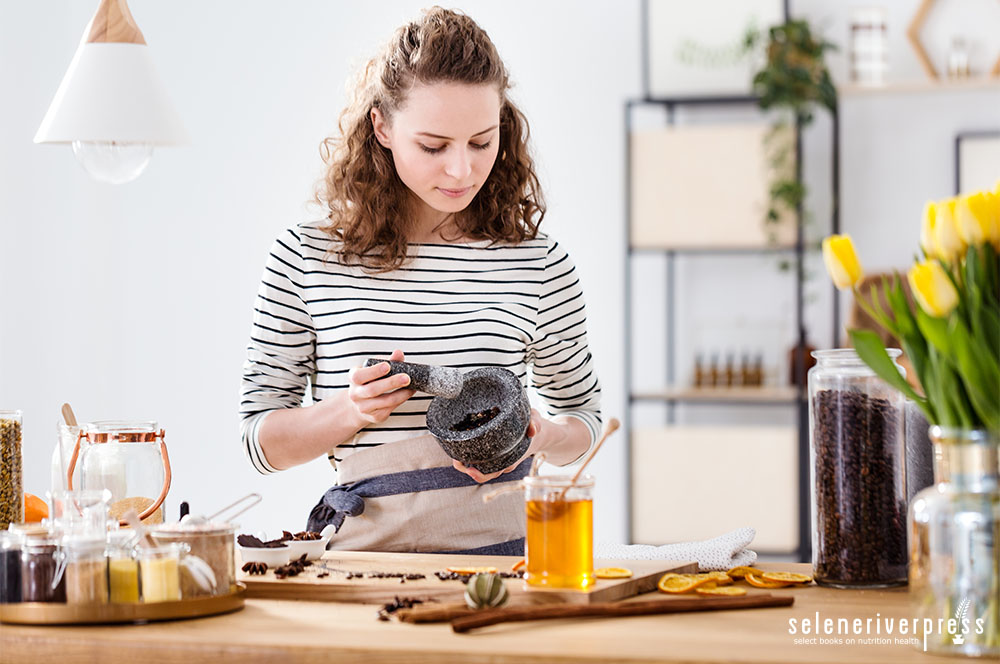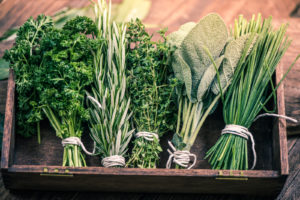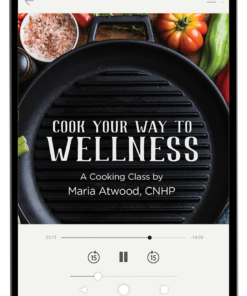In my recent blog post “New Thoughts on Arthritis,” I wrote that more and more evidence is pointing to the fact that arthritis and other musculoskeletal disorders may, in reality, be caused by long-standing infections. I would like to suggest that you go back and read that blog post before continuing here, as this will be more relevant as a follow-up.
Since first writing about this topic, I have been looking for more evidence of the “long-standing infection” theory. I believe that I have found the best medical data to date, and I am convinced that indeed we are on the right track.
Oh, and by the way, this theory is even the case for generally healthy people with good diets who don’t understand how they developed this disorder. (That’s what happened to me!) I will discuss the reason below, but for now the evidence I speak of is contained in the downloadable article “Nutritional and Botanical Treatments Against ‘Silent Infections’ and Gastrointestinal Dysbiosis, Commonly Overlooked Causes of Neuromusculoskeletal Inflammation and Chronic Health Problems” (Nutrition Perspectives 2006).
Meet Dr. Alex Vasquez, author of the above-mentioned article. After researching his work and books, I decided to, among other things, let my readers know of one of his most important recommendations: Standard Process whole food supplements. (Although not named by brand in his article, I knew from the supplement names that they are definitely Standard Process products.)
In addition, Dr. Vasquez advocates the use of antimicrobial herbs. Unlike many herbs that are anti-inflammatory, antifungal, and antibacterial, these contain that additional power punch of being antimicrobial! So listen up, dear reader.
As a matter of fact, I’ve not seen any herb, spice, or essential oil specifically labeled “antimicrobial.” This means it has the qualities of destroying or inhibiting the growth of microorganisms and especially pathogenic microorganisms such as bacteria, fungi, parasites, and viruses, as noted in this dictionary of pathogenic microorganisms.
This was quite a discovery for me. I am now convinced that this is another important issue we must pay attention to when seeking pain relief. Use of specific herbs, spices, essential oils, and/or other foods and whole-food supplements that contain antimicrobial qualities may even result in complete healing.
The Role of Gut Dysbiosis
You will encounter quite an education when you read Dr. Vasquez’s article. He goes into minute detail of the enormous issues caused by gut dysbiosis. This condition, as it turns out, is the origin of many of our health problems, including painful joints!
Further, in the abstract of their article “Dysbiosis of the Gut Microbiota in Disease,” authors Simon Carding et al., note: “There is growing evidence that dysbiosis of the gut microbiota is associated with the pathogenesis of both intestinal and extra-intestinal disorders. Intestinal disorders include inflammatory bowel disease, irritable bowel syndrome (IBS), and celiac disease, while extra-intestinal disorders include allergy, asthma, metabolic syndrome, cardiovascular disease, and obesity.” (Emphasis mine)
Other than eating organic foods and maintaining what we believe to be a healthy diet, many of us do almost nothing to really cleanse our gut and keep it pathogen-free, even though we are perpetually making these poisons in our body! (Probably from all the sugar we eat.)
We should therefore consider a daily, ongoing gut-cleansing method. Yes, gut cleansing should be right up there with taking a daily bath, eating healthy, unprocessed food, drinking fluoride-free water, and lowering our daily stress level. I outline suggestions for daily gut cleansing below, but first allow me to introduce you to the many types of gut dysbiosis outlined by Dr. Vasquez.
Eleven Types of Gut Dysbiosis Types
Here are the eleven types of gut dysbiosis as noted by Dr. Vasquez in the article I cite at the beginning of this blog post:
- Insufficiency dysbiosis: The result of an insufficient quantity of good bacteria.
- Bacterial overgrowth: A quantitative excess of yeast and bacteria in the gut.
- Immunosuppressive dysbiosis: When some microbes, particularly yeast (candida), produce toxins that suppress immune function.
- Hypersensitivity dysbiosis: An exaggerated immune response to otherwise “normal” yeast and bacteria.
- Inflammatory dysbiosis and reactive arthritis: Occurs in those who have specific genotypes and HLA markers that increases susceptibility to a proinflammatory autoimmune syndrome.
- Amoebas, cysts, protozoans, and other parasites: These cases are not about worms per se, although worms are occasionally found with parasitological examinations.
- Sino respiratory dysbiosis: Patients with acute and chronic rhino sinusitis display a rich mixture of bacteria and fungi in their sinuses.
- Dental dysbiosis: The human oral cavity is heavily populated with these microbes, and their products (such as endotoxin) can enter the bloodstream.
- Genitourinary dysbiosis: It is well known that genitourinary infection with chlamydia trachomatis can produce systemic inflammation.
- Cutaneous dysbiosis: Microorganisms from dermal infections such as acne can incite systemic inflammation by dermal absorption of bacteria.
- Environmental dysbiosis: “Toxic mold syndrome” describes patients with systemic health problems resulting from exposure to fungal bio-aerosols.
An Antimicrobial Solution to Daily Gut Cleansing
Like many other things we eat or use on a daily basis, antimicrobial herbs, spices, essential oils, and some foods seem to have been designed by nature to slay the dragon of accumulating microorganisms that cause so much havoc. Maybe you don’t know what they are, but after you see the information below you may decide to take a 180-degree turn in your daily processes to make sure your diet includes these precious antimicrobial gifts.
Antimicrobial Herbs Kill or Stop the Growth of Microorganisms
According to ChestNutHerbs.com, the following five antimicrobial herbs are essential for your medicine cabinet. I recommend reading the article, but I have also added more links for further study. Please remember that you can grow many of these herbs right in your backyard.
#1. Japanese honeysuckle (Lonicera japonica, Caprifoliaceae). This is also known as forsythia. Learn more here.
#2. Usnea (Usnea spp., Parmeliaceae). Learn more here.
#3. Garden sage (Salvia officinalis, Lamiaceae) and White sage (Salvia apiana, Lamiaceae). Learn more here.
#4. Bee balm (Monarda spp., Lamiaceae). Learn more here.
#5. Goldenseal (Hydrastis canadensis, Ranunculaceae). Contraindications: High doses of goldenseal should only be taken for short periods of time (no more than three weeks), as it can cause inflammation and irritation to the mucous membranes and digestive tract. Even in small doses, tonic use can be overly cooling and drying to most constitutions. Other contraindications include high blood pressure, pregnancy (large doses can cause premature contractions), and breastfeeding. Learn more here.
Southeast Wise Woman: Here is a list of an additional 27 antimicrobial herbs. A truly awesome collection! All you need is a little imagination to get these into your diet.
Common Antimicrobial Herbs: This information is from a syllabus from the University of Hawaii. You will certainly end up spending a good deal of time on this website as you’ll find a plethora of common antimicrobial foods and herbs you can incorporate into your diet. My favorites named here are onions and garlic, which you can eat raw in salads or sandwiches. (I grow my own heirloom garlic. Read about its amazing antimicrobial properties here.)
Essential Oils with Microbial Properties
Here is a list of the six most potent essential oils, according to AromaFoundry.com. You can find many recipe books about cooking with essential oils. You can also use them with a carrier oil and rub them on the bottom of your feet as essential oils do enter into the bloodstream.
6 Potent Essential Oils
- Eucalyptus essential oil
- Tea Tree essential oil
- Citronella essential oil
- Sage essential oil
- Peppermint essential oil
- Lemongrass essential oil
Personal note: I only list this website to reference the list of herbs above. However, I have not purchased from them and cannot confirm the purity of the essential oils they sell on their site. Please do your own research before you buy organic essential oils. Learn more by reading my blog post “A Primer on Essential Oil.”
Foods Highly Recommended by Dr. Vasquez
Dr. Vasquez must have been an avid reader of both Dr. Royal Lee and Weston A. Price. I say this because he makes a very important statement on the importance of including probiotics and prebiotics in the diet to keep things in tip-top shape.
In my blog post “The Tremendous Benefits of Lacto-Fermented Foods,” I outline just a few of these benefits:
Wonder foods that are fermented (not pickled in vinegar) may help protect against infections and fungi. Fermented foods and beverages also provide fiber, which aids digestion and could help prevent serious digestive disorders that may be the root cause of many illnesses. As described in Making Sauerkraut and Pickled Vegetables at Home by Klaus Kaufmann and Annelies Schoneck, the benefits of lactic acid are numerous. Here are just a few:
- Prevents decay, not only in food but in the bowels.
- Stimulates the peristaltic movement of the intestines.
- Assists in the circulation of the blood.
- Has a harmonizing effect on the stomach, strengthens the acidity of the gastric juice when production lags, and reduces acidity when production is up.
- Relieves the burden on the digestive system by significantly improving intestinal digestion.
- Increases nutrient absorption.
Further, Sally Fallon Morrell’s book Nourishing Traditions is a profound learning tool that offers vital gut-healing recipes and information about maintaining a healthy gut. (Here is one of her seminars that is available on YouTube.)
In closing, I hope you’ve been inspired to try antimicrobial herbs, spices, and foods. I also strongly recommend that you look for a holistic Standard Process practitioner who will be able to test for your individual needs and supply you with some unique whole-food supplements that will help you create a daily gut-cleansing habit. Try to keep that beautiful little belly of yours—as well as your family’s—full of microbial soldiers to help keep pain-causing microorganisms from ever getting into the bloodstream, joints, brain, or that precious little heart!
[xyz-ihs snippet=”Begin-Authors-Note”]Afterthoughts from the Traditional Cook
I strongly suggest you read my recent blog post “Exploring the Second Brain” to learn just how connected our gut wellness is to our mental health. Below is a quote from my blog post that relates what Dr. Jay Pasricha has to say about the importance of keeping our intestinal track as healthy as possible. Could your gut be so compromised that it is the real reason for your anxiety, fear, phobias, and moodiness?
What an Expert Says
“Dr. Jay Pasricha, Director of the Johns Hopkins Center for Neurogastroenterology, states in a number of his books that, for the past several decades, researchers and doctors mistakenly believed that anxiety and depression contributed to IBS, constipation, and diarrhea. But Dr. Pasricha’s own studies show that it’s the other way around. Irritation in the gastrointestinal system may send signals to central nervous system (CNS) that trigger mood changes. This may explain why a higher than normal percentage of people with IBS and functional bowel problems develop depression and anxiety.”
[xyz-ihs snippet=”End-Authors-Note”]Note from Maria: I am a Certified Natural Health Professional, CNHP, not a medical doctor. I do not diagnose, prescribe for, treat, or claim to prevent, mitigate, or cure any human diseases. Please see your medical doctor prior to following any recommendations I make in my blogs or on my website.
Images from iStock/KatarzynaBialasiewicz (main),Milanika (Ripe rose hips),merc67 (herbs).




